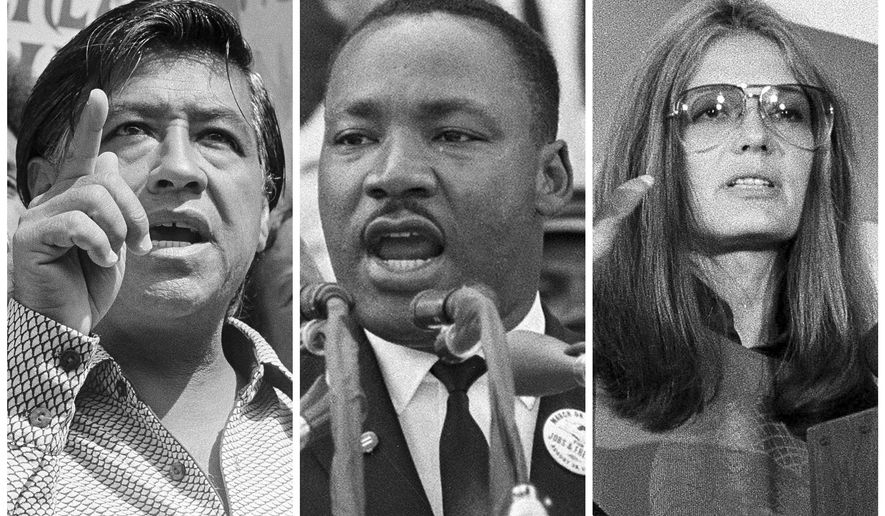
CHICAGO (AP) - The Rev. Martin Luther King Jr.[1] marching arm-in-arm with other civil rights activists. Cesar Chavez[2] hoisting a picket sign in a farm workers’ strike. Gloria Steinem rallying other feminists for equal rights.
During the 1960s and into the 1970s, amid the turbulence of protests for civil rights and against the Vietnam War, every movement seemed to have a famous face - someone at a podium or at the front of a march who possessed a charismatic style, soaring oratory and an inspiring message.
Not so today.
The new wave of political activism, marked by protests in the nation’s capital and cities across America, looks more anonymous.
Since the presidential election of Donald Trump, there have been marches for women, science, the Dreamers - immigrants brought to the U.S. illegally as children - and most recently, gun control, a response to the school shooting in Parkland, Florida. In all those events, many voices - some more high-profile than others - have represented each cause.
Have America’s protests changed so they rely more on the masses and less on one captivating leader?
The answer, some experts say, is yes, for two reasons: Progressive politics have moved in that direction- think Black Lives Matter, Occupy Wall Street - and social media has radically transformed activism. Decades ago, it could take weeks of planning, newspaper ads and a rousing speaker to organize a successful protest. Now a Facebook post or a series of tweets can fill the streets, jam a state capitol or block an expressway.
“With the rise of social media, it’s definitely a lot easier for people to mobilize more quickly and you don’t necessarily need to have one charismatic leader like Dr. King[3], who had almost some kind of magical quality,” says Rachel Einwohner[4], a Purdue University[5] sociology professor. “But you still do need some powerful message that really resonates with a lot of people.”
Technology alone hasn’t created the shift. Some progressives believe there’s “something inherently wrong or problematic” about having a dynamic leader, says Fabio Rojas, an Indiana University sociology professor. “Modern progressive social movements see themselves as a very democratic form of politics,” he says. “When they make decisions, they want a lot of consensus.”...
Black Lives Matter, which has been in the forefront of protests against police violence and fatal shootings of black men, is among the many movements that have adopted this approach.“The model of the charismatic leader was not something that we were interested in and in fact, many of us were trained to believe that the people themselves are going to set themselves free, not one person,” says Patrisse Cullors, a co-founder of the group.Cullors says her group is sometimes misunderstood.“People assume because we hit the streets and protested that we don’t believe in anything else … and that because we don’t have a single
